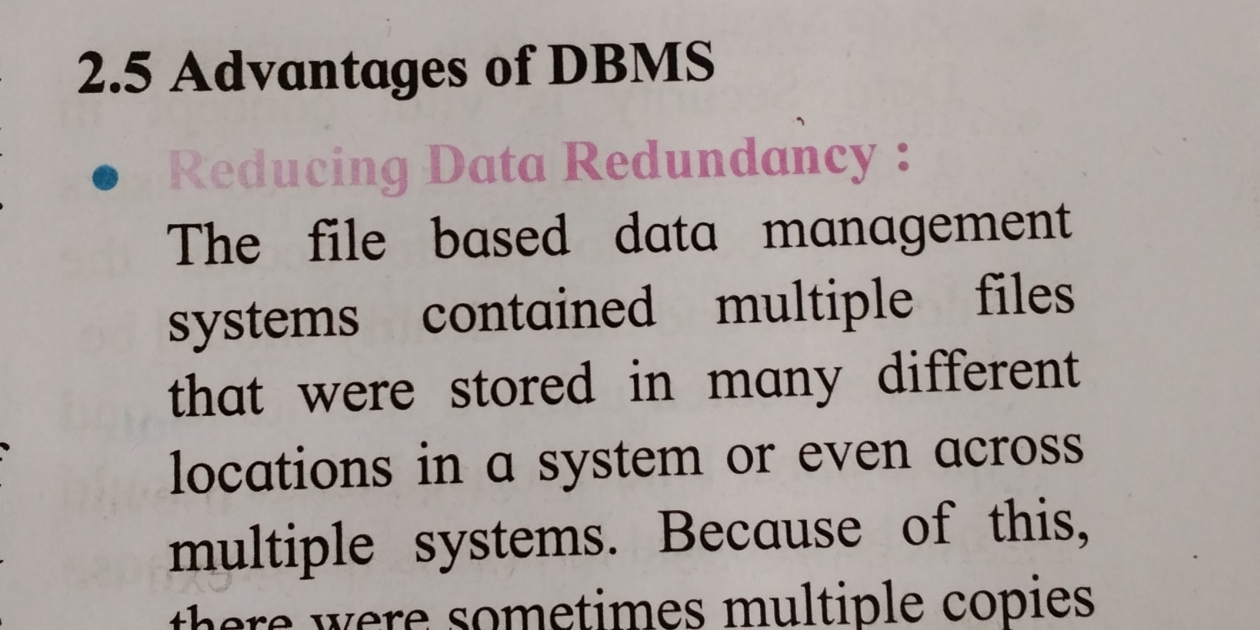What are the advantages of DBMS in reducing data redundancy?

Understand the Problem
The text describes the advantages of database management systems (DBMS), specifically focusing on how a DBMS helps in reducing data redundancy by managing multiple files efficiently.
Answer
DBMS centralizes data to reduce redundancy and improve integrity.
DBMS reduces data redundancy by centralizing data storage and using normalization techniques, which ensures that data is only stored once in a structured format, improving data integrity and consistency.
Answer for screen readers
DBMS reduces data redundancy by centralizing data storage and using normalization techniques, which ensures that data is only stored once in a structured format, improving data integrity and consistency.
More Information
DBMS helps maintain a single copy of data which reduces inconsistencies and saves storage space.
Tips
One common mistake is not understanding that normalization is a key technique DBMS uses to reduce data redundancy.
Sources
- How DBMS Reduces Data Redundancy? - GeeksforGeeks - geeksforgeeks.org
- Advantages of Database Management System - GeeksforGeeks - geeksforgeeks.org
- Advantages of DBMS | Top 15 Advantages of DBMS You Should Know - educba.com
AI-generated content may contain errors. Please verify critical information